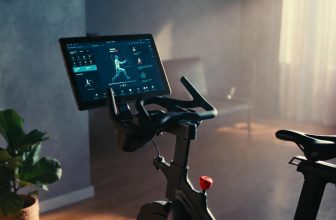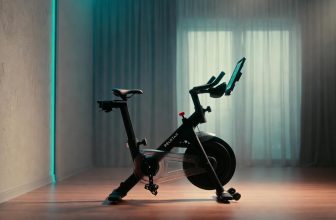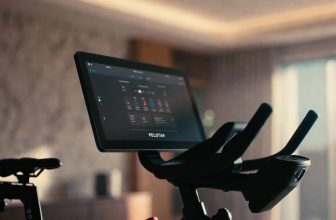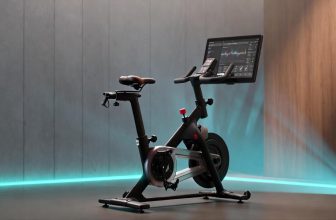Table of Contents
- Which Company Is Best for Treadmills?
- NordicTrack: Industry Leader in Innovation and Value
- Why NordicTrack Stands Out
- Peloton: Premium Experience with Immersive Classes
- Peloton’s Key Features
- Sole: Durability and Simplicity for Serious Runners
- Sole’s Strengths
- Horizon Fitness: Budget-Friendly with Solid Performance
- Horizon’s Highlights
- BowFlex: Versatile for Mixed Workouts
- BowFlex Advantages
- Comparison Table
- Key Considerations for Choosing a Treadmill
- FAQs
- What is the best treadmill brand for home use?
- Are expensive treadmills worth the investment?
- Do I need a subscription for smart treadmill features?
- How much space do I need for a treadmill?
- Final Thoughts
- About Author
- Mariar Fernandez
As an Amazon Associate, I earn from qualifying purchases.
Which Company Is Best for Treadmills?
Which Company Is Best for Treadmills? NordicTrack, Peloton, and Sole are top treadmill brands in 2025, with NordicTrack leading for its balance of advanced technology, durability, and value, particularly the Commercial 1750 model.
NordicTrack: Industry Leader in Innovation and Value
Which Company Is Best for Treadmills? NordicTrack dominates the treadmill market with its blend of cutting-edge technology, robust build, and competitive pricing. The NordicTrack Commercial 1750 and Commercial 2450 consistently rank as top models due to their powerful motors, interactive features, and foldable designs.
Why NordicTrack Stands Out
- Motor Power: The Commercial 1750 boasts a 4.25 CHP motor, supporting speeds up to 12 mph and a -3% to 12% incline range, ideal for intense workouts.
- iFit Integration: A 16-inch HD touchscreen offers access to over 10,000 iFit workouts, with automatic speed and incline adjustments for immersive training.
- Durability: With a 400-pound weight capacity and a cushioned deck, it suits diverse users, from beginners to marathon runners.
- Space-Saving: Foldable design with a FeatherLight folding mechanism ensures easy storage.
Statistic: According to a 2025 Consumer Reports test, NordicTrack’s Commercial 1750 scored highest for ease of use and exercise range, making it ideal for home gyms.
However, the touchscreen can occasionally be unresponsive, requiring firmware updates, and the iFit subscription ($15-$40/month) adds to the cost. For a detailed review, visit NordicTrack’s Commercial 1750 Product Page.
Peloton: Premium Experience with Immersive Classes
Peloton’s Tread and Tread+ models cater to runners seeking a premium, class-driven experience. Known for their sleek design and expansive workout libraries, they’re perfect for those prioritizing guided training.
Peloton’s Key Features
- Slatted Belt: The Tread+ features a unique slatted belt for smoother, cushioned runs, ideal for high-speed sessions up to 12.5 mph.
- Large Display: A 32-inch tilt touchscreen delivers Peloton’s on-demand classes, covering running, strength, and yoga.
- Safety Updates: Post-2021 recall, the Tread+ includes a rear safety guard, addressing past safety concerns.
Quote: “The Tread+ feels smooth even at faster speeds, unlike other treadmills that get shaky below a 7-minute-mile pace,” says Katherine Wuestenfeld, NASM-certified trainer.
Which Company Is Best for Treadmills? Peloton’s downside is its size (455 pounds) and high cost, with models starting at $3,000 plus a $39/month subscription. It’s less ideal for small spaces. Learn more at Peloton’s Tread Product Page.
Sole: Durability and Simplicity for Serious Runners
Sole’s F80 and F85 models are favored for their no-frills durability and excellent warranties, appealing to runners who prioritize reliability over tech.
Sole’s Strengths
- Robust Build: The F80 features a 3.5 CHP motor and a 15% incline, supporting users up to 375 pounds.
- Free Sole+ App: Offers over 3,000 on-demand workouts without a subscription fee, unlike competitors.
- Warranty: Lifetime frame and motor warranty, with 5 years on parts, outpacing many brands.
Statistic: Sole’s F80 scored 4.5/5 for value in BarBend’s 2025 tests, praised for its wide 22-inch belt and cushioning.
Sole lacks decline options and advanced touchscreens, limiting its appeal for tech-savvy users. Check out Sole’s offerings at Sole Fitness.
Horizon Fitness: Budget-Friendly with Solid Performance
Horizon Fitness offers affordable yet reliable treadmills like the 7.0 AT, ideal for walkers and joggers seeking value without sacrificing quality.
Horizon’s Highlights
- Cushioning: Three-zone Variable Response Cushioning reduces joint stress, earning a 4/5 workout experience rating.
- QuickDial Controls: Intuitive speed and incline adjustments up to 15% enhance usability.
- Compact Design: Foldable with a 152cm deck, suitable for smaller spaces.
Drawback: The 7.0 AT’s narrow 50cm belt may feel restrictive for runners with longer strides. Explore Horizon’s range at Horizon Fitness.
BowFlex: Versatile for Mixed Workouts
BowFlex’s Treadmill 10 and T9 models excel for users combining running with virtual training via apps like Peloton and Zwift.
BowFlex Advantages
- Incline/Decline: Offers -5% to 15% incline, simulating real-road conditions.
- JRNY App: Provides personalized workouts, though a subscription is required.
- Comfort: Wide 22-inch belt and cushioned deck support long runs.
Note: The T9 lacks a touchscreen, relying on an LCD monitor, which may feel dated. Visit BowFlex’s Treadmill Page for more details.
Comparison Table
| Brand | Top Model | Motor (CHP) | Incline Range | Max Speed | Key Feature | Price Range |
|---|---|---|---|---|---|---|
| NordicTrack | Commercial 1750 | 4.25 | -3% to 12% | 12 mph | iFit touchscreen | $1,500-$2,000 |
| Peloton | Tread+ | 3.0 | 0% to 15% | 12.5 mph | Slatted belt, 32” screen | $3,000-$4,500 |
| Sole | F80 | 3.5 | 0% to 15% | 12 mph | Lifetime warranty | $1,500-$1,800 |
| Horizon Fitness | 7.0 AT | 2.5 | 0% to 15% | 12 mph | Three-zone cushioning | $1,000-$1,500 |
| BowFlex | Treadmill 10 | 3.0 | -5% to 15% | 12 mph | JRNY app compatibility | $1,800-$2,000 |
Key Considerations for Choosing a Treadmill
- Motor Power: Aim for at least 2.5 CHP for running; 1.5 CHP suffices for walking.
- Running Surface: Minimum 20” wide x 55” long for runners; 45” long for walkers.
- Incline/Decline: 12-15% incline is standard; decline (-3% to -6%) is rare but valuable for advanced training.
- Tech Features: Touchscreens and apps like iFit, JRNY, or Sole+ enhance engagement but may require subscriptions.
- Space and Storage: Foldable models save space; ensure 2 feet of side clearance and 6 feet behind.
- Warranty: Look for at least 10 years on the frame, 5 years on the motor, and 1-2 years on parts.
Market Insight: The global treadmill market is projected to grow from $6.05 billion in 2025 to $9.08 billion by 2032, driven by rising health awareness and demand for smart features.
FAQs
What is the best treadmill brand for home use?
NordicTrack is often rated the best for home use due to its balance of technology, durability, and foldable designs, with the Commercial 1750 being a top pick.
Are expensive treadmills worth the investment?
High-end treadmills (over $1,500) offer better motors, cushioning, and warranties, lasting up to 10 years with proper maintenance. Budget models may lack durability.
Do I need a subscription for smart treadmill features?
Many smart treadmills (NordicTrack, Peloton) require subscriptions for full access to interactive workouts, costing $15-$40/month. Sole’s F80 offers free app access.
How much space do I need for a treadmill?
Allow 2 feet on each side and 6 feet behind for safety. Foldable models like the NordicTrack 1750 or Horizon 7.0 AT save space when not in use.
Final Thoughts
Which Company Is Best for Treadmills? NordicTrack leads for its versatile, tech-savvy treadmills, while Peloton excels for immersive classes and premium design. Sole is ideal for those seeking durability without subscription costs, and Horizon and BowFlex offer strong value for budget-conscious buyers. Consider your fitness goals, space, and budget when choosing. Test models if possible, and prioritize brands with strong warranties and customer support for long-term satisfaction.







